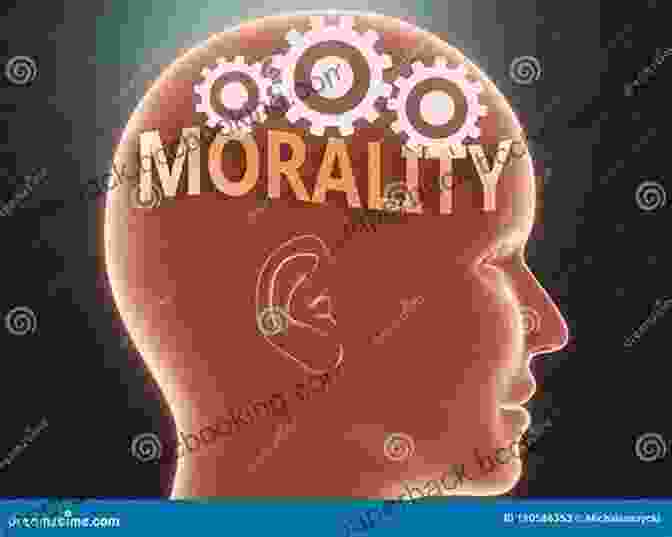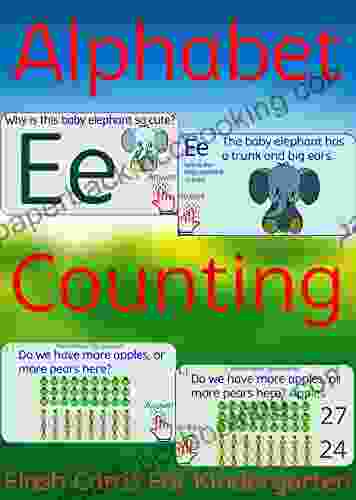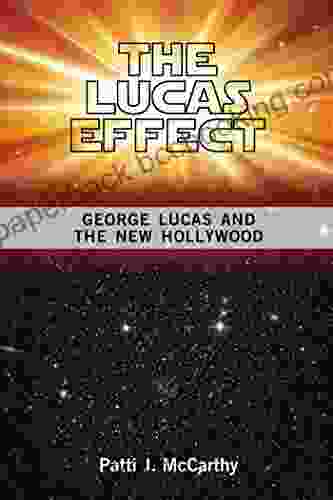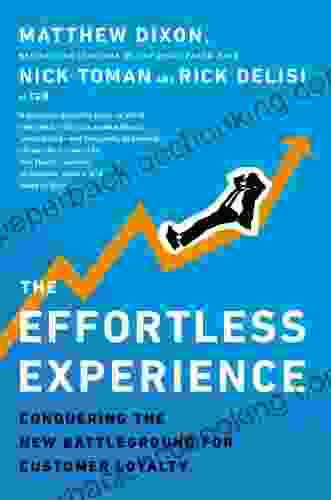How Science Can Determine Human Values: Unraveling the Enigma of Human Morality


4.5 out of 5
| Language | : | English |
| File size | : | 769 KB |
| Text-to-Speech | : | Enabled |
| Screen Reader | : | Supported |
| Enhanced typesetting | : | Enabled |
| Word Wise | : | Enabled |
| Print length | : | 322 pages |
For centuries, the question of what determines human values has captivated philosophers, theologians, and scholars alike. From the ancient Greeks to modern-day intellectuals, the search for a universal moral compass has proven elusive. However, in recent years, a groundbreaking new approach has emerged, one that seeks to bridge the gap between the often-contradictory realms of science and morality.
In his groundbreaking work, "How Science Can Determine Human Values," Dr. Neil Levy, a renowned neuroscientist and philosopher, presents a compelling argument that science holds the key to unraveling the enigma of human morality. Through a rigorous investigation that spans multiple disciplines, Dr. Levy demonstrates how advancements in neuroscience, evolutionary biology, and psychology are revolutionizing our understanding of morality and paving the way for a more ethical society.
Unveiling the Biological Basis of Morality

At the heart of Dr. Levy's thesis is the notion that human values are not merely abstract concepts but have a deep biological foundation. Drawing upon cutting-edge research in neuroscience, he reveals how specific brain regions and neural mechanisms play a crucial role in moral decision-making. From the amygdala, which processes emotions, to the prefrontal cortex, which governs rational thinking, Dr. Levy paints a vivid picture of the intricate neural circuitry that underlies our moral compass.
This groundbreaking work challenges traditional views that cast morality as solely a product of cultural conditioning or individual experiences. Instead, Dr. Levy demonstrates that our moral intuitions are shaped by a complex interplay of biological, evolutionary, and social factors.
Evolutionary Origins of Human Values

Delving deeper into the human psyche, Dr. Levy explores the evolutionary origins of our moral values. He argues that morality is not a recent invention but has evolved over millions of years, providing a survival advantage to our ancestors. Through a fascinating analysis of animal behavior and human societies, Dr. Levy shows how cooperation, empathy, and a sense of fairness are deeply rooted in our evolutionary history.
This evolutionary perspective offers a compelling explanation for why we often experience moral dilemmas and why different cultures may have conflicting moral codes. By understanding the evolutionary underpinnings of our morality, we can gain valuable insights into the nature of human cooperation and the challenges we face in building a more just and equitable society.
The Power of Empathy and Altruism

One of the most profound insights of Dr. Levy's work is the central role of empathy and altruism in human morality. Through compelling case studies and scientific research, he demonstrates how our ability to understand and share the emotions of others is a fundamental pillar of moral behavior. Empathy allows us to connect with others, recognize their suffering, and motivate us to act in their best interests.
Dr. Levy argues that cultivating empathy is essential for fostering a more compassionate and ethical society. He explores practical ways to enhance our empathic abilities, from mindfulness meditation to social service initiatives. By unlocking the power of empathy, we can create a world where individuals are more understanding, supportive, and willing to lend a helping hand.
Science and the Future of Morality

In the final chapters of his book, Dr. Levy delves into the profound implications of his research for the future of morality. He argues that science has the potential to not only explain human values but also to guide us in making better moral choices. By understanding the biological, evolutionary, and psychological underpinnings of morality, we can develop evidence-based policies and practices that promote ethical behavior and reduce harm.
Dr. Levy envisions a future where science plays a pivotal role in education, healthcare, and public policy. Through interdisciplinary collaborations and public discourse, he believes we can create a society where moral values are grounded in scientific understanding and where ethical decision-making becomes a cornerstone of human progress.
In "How Science Can Determine Human Values," Dr. Neil Levy presents a groundbreaking work that challenges conventional wisdom and offers a profound new understanding of human morality. Through a meticulous exploration of the latest scientific research, he demonstrates that science holds the key to unraveling the enigma of human values and to creating a more ethical and just society.
This book is an essential read for anyone seeking a deeper understanding of the nature of morality, the challenges we face in making ethical decisions, and the potential of science to guide us towards a better future. As we navigate the complex moral landscapes of the 21st century, "How Science Can Determine Human Values" provides an invaluable roadmap for building a more compassionate, equitable, and sustainable world for generations to come.
4.5 out of 5
| Language | : | English |
| File size | : | 769 KB |
| Text-to-Speech | : | Enabled |
| Screen Reader | : | Supported |
| Enhanced typesetting | : | Enabled |
| Word Wise | : | Enabled |
| Print length | : | 322 pages |
Do you want to contribute by writing guest posts on this blog?
Please contact us and send us a resume of previous articles that you have written.
 Book
Book Novel
Novel Page
Page Chapter
Chapter Text
Text Story
Story Genre
Genre Reader
Reader Library
Library Paperback
Paperback E-book
E-book Magazine
Magazine Newspaper
Newspaper Paragraph
Paragraph Sentence
Sentence Bookmark
Bookmark Shelf
Shelf Glossary
Glossary Bibliography
Bibliography Foreword
Foreword Preface
Preface Synopsis
Synopsis Annotation
Annotation Footnote
Footnote Manuscript
Manuscript Scroll
Scroll Codex
Codex Tome
Tome Bestseller
Bestseller Classics
Classics Library card
Library card Narrative
Narrative Biography
Biography Autobiography
Autobiography Memoir
Memoir Reference
Reference Encyclopedia
Encyclopedia Maria Isabel Sanchez Vegara
Maria Isabel Sanchez Vegara Lisa Mcmann
Lisa Mcmann Linda Lael Miller
Linda Lael Miller Lana Wedmore
Lana Wedmore Nancy Ellen Abrams
Nancy Ellen Abrams Steve Gold
Steve Gold Roy Macgregor
Roy Macgregor Yakima Canutt
Yakima Canutt Mukund Kaushal
Mukund Kaushal Tamonya Sands
Tamonya Sands Walter Rodney
Walter Rodney Paul Pringle
Paul Pringle Maria Thompson Daviess
Maria Thompson Daviess Mei Yu
Mei Yu Prashant Shah
Prashant Shah Paula Young Shelton
Paula Young Shelton Lee Hadan
Lee Hadan Tarani Chandola
Tarani Chandola Michael Hirsh
Michael Hirsh Linda Jaivin
Linda Jaivin
Light bulbAdvertise smarter! Our strategic ad space ensures maximum exposure. Reserve your spot today!

 Douglas FosterBuilding a Mining Empire: Footprints 26: Unlocking the Secrets of Success One...
Douglas FosterBuilding a Mining Empire: Footprints 26: Unlocking the Secrets of Success One...
 Roger TurnerUnlock Financial Freedom: A Comprehensive Guide to Acquiring Perpetual Income
Roger TurnerUnlock Financial Freedom: A Comprehensive Guide to Acquiring Perpetual Income Ian McEwanFollow ·5.8k
Ian McEwanFollow ·5.8k Gerald BellFollow ·7.4k
Gerald BellFollow ·7.4k Ismael HayesFollow ·19.1k
Ismael HayesFollow ·19.1k Willie BlairFollow ·7.3k
Willie BlairFollow ·7.3k Carlos DrummondFollow ·8.8k
Carlos DrummondFollow ·8.8k Truman CapoteFollow ·9.9k
Truman CapoteFollow ·9.9k Alan TurnerFollow ·6.9k
Alan TurnerFollow ·6.9k Wayne CarterFollow ·14.1k
Wayne CarterFollow ·14.1k

 E.M. Forster
E.M. ForsterBluewater Walkabout: Into the Pacific
An Unforgettable...

 Joseph Foster
Joseph FosterUnlock the Secrets of Standardized Test Success with Test...
Are you tired of struggling with standardized...

 Joe Simmons
Joe SimmonsUnlock Learning with Flash Cards for Kindergarten:...
Ignite a Passion for...

 Raymond Parker
Raymond ParkerJourney into the Enchanting World of "The Heart Kingdom"...
A Timeless Tale of Love,...
4.5 out of 5
| Language | : | English |
| File size | : | 769 KB |
| Text-to-Speech | : | Enabled |
| Screen Reader | : | Supported |
| Enhanced typesetting | : | Enabled |
| Word Wise | : | Enabled |
| Print length | : | 322 pages |












